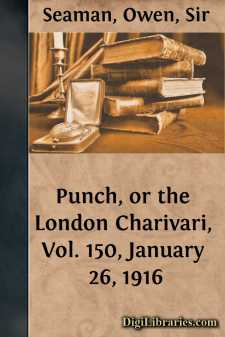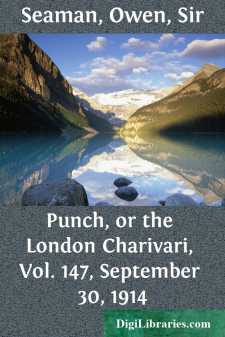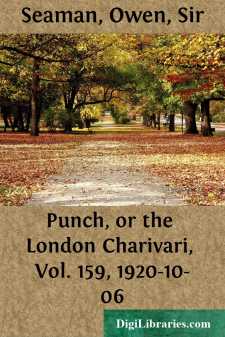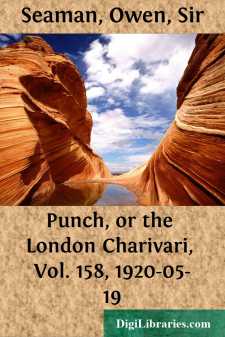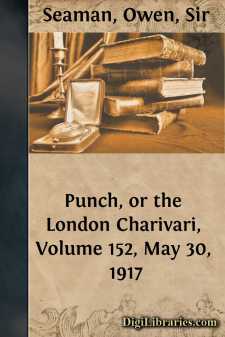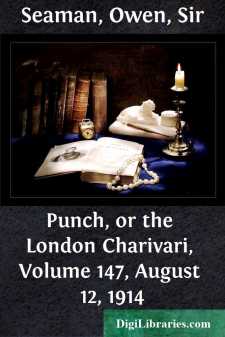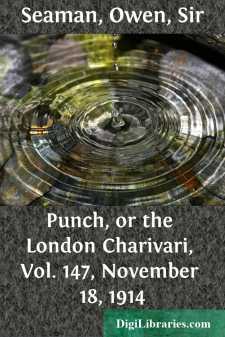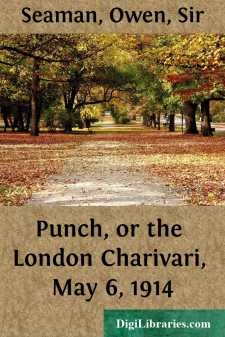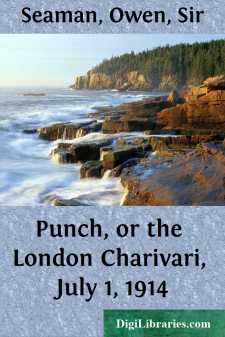Categories
- Antiques & Collectibles 13
- Architecture 36
- Art 48
- Bibles 22
- Biography & Autobiography 813
- Body, Mind & Spirit 142
- Business & Economics 28
- Children's Books 15
- Children's Fiction 12
- Computers 4
- Cooking 94
- Crafts & Hobbies 4
- Drama 346
- Education 46
- Family & Relationships 57
- Fiction 11828
- Games 19
- Gardening 17
- Health & Fitness 34
- History 1377
- House & Home 1
- Humor 147
- Juvenile Fiction 1873
- Juvenile Nonfiction 202
- Language Arts & Disciplines 88
- Law 16
- Literary Collections 686
- Literary Criticism 179
- Mathematics 13
- Medical 41
- Music 40
- Nature 179
- Non-Classifiable 1768
- Performing Arts 7
- Periodicals 1453
- Philosophy 64
- Photography 2
- Poetry 896
- Political Science 203
- Psychology 42
- Reference 154
- Religion 513
- Science 126
- Self-Help 84
- Social Science 81
- Sports & Recreation 34
- Study Aids 3
- Technology & Engineering 59
- Transportation 23
- Travel 463
- True Crime 29
Punch, or the London Charivari, Vol. 147, December 30, 1914
by: Owen Seaman
Categories:
Description:
Excerpt
December 30, 1914.
Abdul the D—d is said to feel it keenly that, when the British decided to appoint a Sultan in Egypt, they did not remember that he was out of a job.
Meanwhile Abbas Pasha is reported to have had a presentiment that he would one day be replaced by Kamel Pasha. is said that for some time past he would start nervously whenever he heard the band of a Highland regiment playing "The Kamel's a-coming."
We have very little doubt that the German newspapers are publishing photographs of Whitby Abbey, and claiming the entire credit for its ruined condition.
It remained for The Times to chronicle the Germans' most astounding feat. It happened at Hartlepool. "A chimney nearly 200 feet in height, on the North-Eastern Railway hydraulic power-station, was," our contemporary tells us, "grazed by a projectile about 100 yards above its base."
The Archbishop of York, who was one of the Kaiser's few apologists, is said to feel keenly that potentate's ingratitude in selecting for bombardment two unprotected bathing-places in his Grace's diocese.
It is widely rumoured that Wilhelm is conferring a special medal on the perpetrators of this and similar outrages, to be called the Kaiser-ye-Hun medal.
Some of the German newspapers have been organising a symposium on the subject of how to spend the coming Christmas. Herr Arthur von Gwinner, director of the Deutsche Bank, is evidently something of a humourist. "More than ever," he says, "in the exercise of works of love and charity." We rather doubt whether the Herr Direktor's irony will be appreciated in high quarters.
A message from Amsterdam says that there are signs in Berlin of discontent with the German Chancellor and his staff, and patriots are calling for a "clean sweep." The difficulty, of course, is that, while there are plenty of sweeps in Germany, it is not easy to find a clean one.
"Immediately after his arrival at Rome," says The Liverpool Echo, "Prince Buelow proceeded to the Villa Malte, his usual residence at Rome, where he will stay until he takes up his quarters at the Caffarelli police." Our alleged harsh treatment of aliens fades into insignificance by the side of this!
General Baron von Bissing, the Governor-General of Belgium, has informed a German journal that the Kaiser has "very specially commanded him to help the weak and oppressed in Belgium." By whom, we wonder, are the Belgians being oppressed?
The same journal announces that General von Diedenhofen, the commander at Karlsruhe, has issued a proclamation expressing his "indignation at the dishonourable conduct" of three German Red-Cross Nurses who have married wounded French prisoners. It certainly does look like taking advantage of the poor fellows when they were more or less helpless.
We hear that considerable ill-feeling has been caused in certain quarters of Paris by a thoughtless English newspaper calling the Germans "the Apaches of Europe."
A German critic has been expatiating on the trouble we must have in feeding an Army with so many different tastes and creeds....



